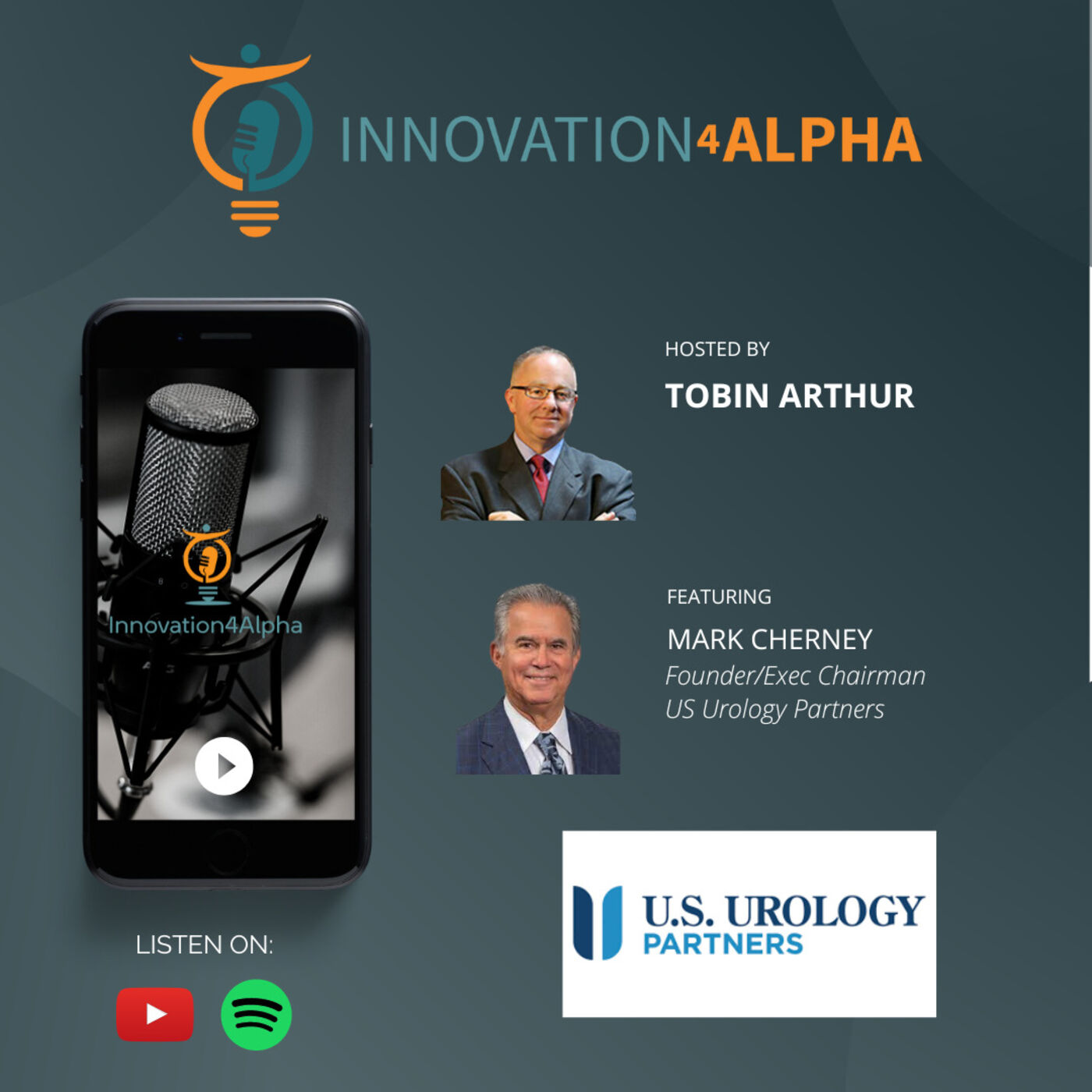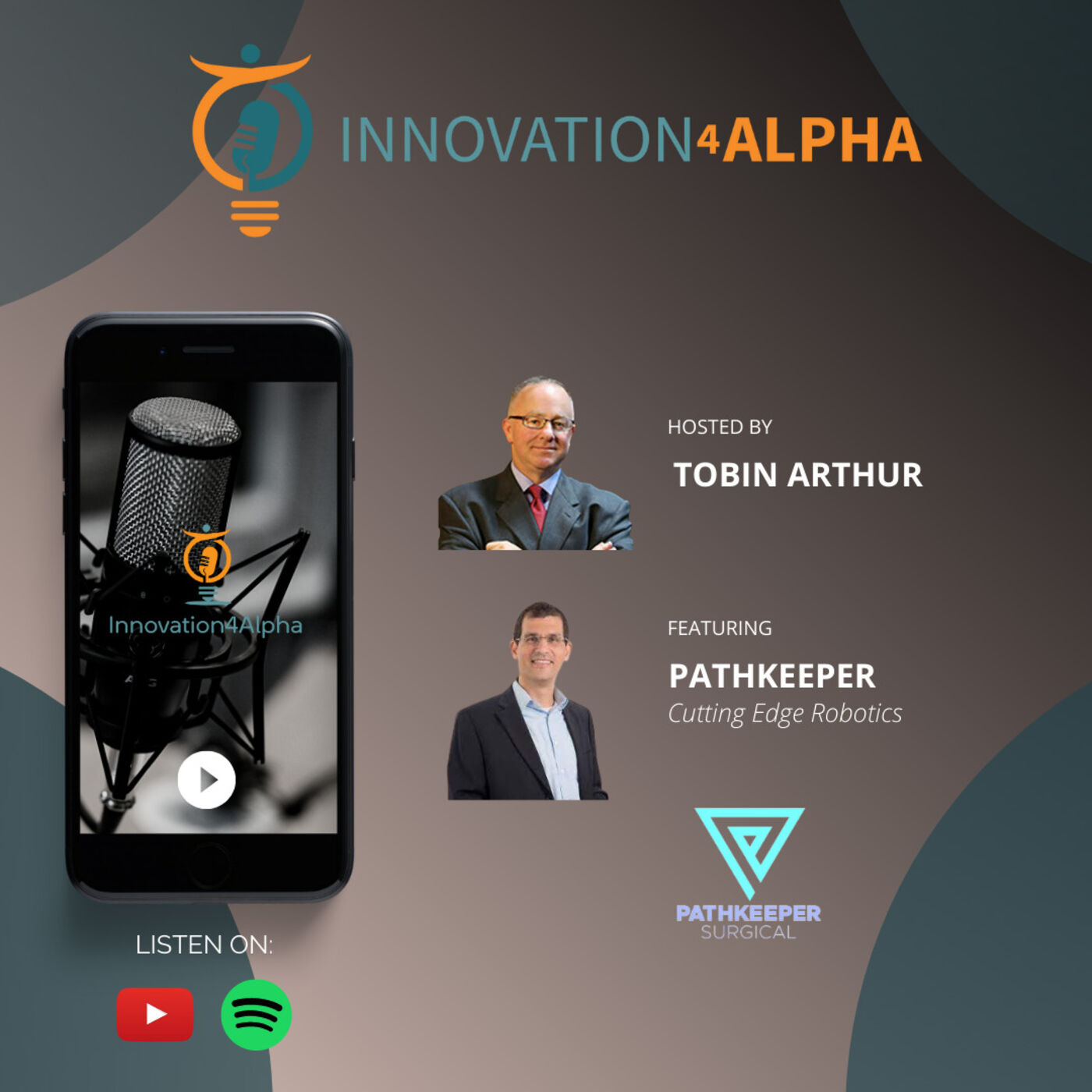Episode Transcript
<cite>Tobin Arthur:</cite>
<time>0:19</time>
<p>Hi, everybody. It's Tobin, Arthur, your host for Innovation 4 Alpha and I'm joined today by a good friend of mine, Dr. Amir Baluch is a really, really interesting physician based in Dallas. Amir, great to have you on the program.</p>
<cite>Amir Baluch, MD:</cite>
<time>0:34</time>
<p>Hey, thanks for having me on here. I love to talk about all this stuff</p>
<cite>Tobin Arthur:</cite>
<time>0:48</time>
<p>I'm going to try to keep this tight. Let's start with just an introduction. I think the way that you got into medicine and in business is fascinating is a good inspiration for a lot of doctors. So can maybe give a little bit of that background.</p>
<cite>Amir Baluch, MD:</cite>
<time>1:00</time>
<p>Yeah, it was almost, I feel like I was kind of forced to get into it. So, you know, I felt like I was pretty top of my class and college, I took the MCAT had pretty decent scores. And then I got my rejection letter, I'm like, wait a second, what am I going to do? What if I can never be a doctor like that never came into my mind that thought. So I gotta have something to do for a year. And there's an infomercial on the radio about starting up a business and my roommate wanted to do it. So. So I poured my life savings into that. And after about a year, it failed. But I learned a lot about business. And actually, I really liked the process. And I saw myself being a business person. And I didn't get that exposure in college at all. So in the meantime, I also had gotten into med school, the second time I applied, and I increased my MCAT scores and everything. But I deferred them for another year to continue to do some more business. And now I just really liked it a lot, I did a lot of odd jobs that I had even, you know like flipping cars, flipping watches, I was creating websites, driving traffic and selling them off. So a whole bunch of different things I was doing. And eventually I got into med school, but I still wanted to pursue business. So when other people were either watching movies or sleeping I was still selling things on eBay or printing my next side hustle, whatever I could do, I was just so intrigued. So that's kind of how I got started by force. By the way, the same time that I didn't get into medical school. My dad went bankrupt, and he was a doctor. So he had a very busy internal medicine practice. And I wasn't too worried about not getting into med school because I was thinking my dad could just give me some money until I figured that happened. Like, two months after I got my rejection letter. I was like, Wait a second, I really can't trust any plan that I had or any one source of income, we have to diversify. And my mind is like, we got to diversify. No matter what, even if you're a doctor, you got to have some other streams of income, you better have more than one skill set if you want to survive. And that was just my mindset since I was 21 years old. And throughout the process eventually became an anesthesiologist moved to Dallas, Texas after I finished my training in Miami. And as soon as I hit the ground, I kept going with things and got involved in real estate. We were doing work with a broker dealer, we were flipping multifamily got really heavily involved in real estate, actually and now involved in private equity and biotech. And, the sky's the limit. And I just keep on trying to grow personally and continue with these side hustles.</p>
<cite>Tobin Arthur:</cite>
<time>3:55</time>
<p>I love it. And I don't know that you get any sleep now because you've got so much that you do. But I think that's also what makes you so fascinating. You figured out how to connect these dots in a way that I think a lot of people aspire to. And so you've got an event coming up that we're really excited at AngelMD to be sponsoring and helping to promote called Side Hustle MD. Talk to us a little bit about the genesis of that and what you're working to accomplish at that event.</p>
<cite>Amir Baluch, MD:</cite>
<time>4:21</time>
<p>Well whatever, I'm in the doctors lounge. A lot of other physicians are asking me Hey, how's this? How's this hustle going? How's that hustle going? How'd you do this? How can I started this? While thinking well, let me put together a summit and answer all their questions in one shot. And so for a couple months, I was scouring the internet for other physicians that were thinking outside the box, very entrepreneurial, and they successfully created side income from through side hustles some of them even left medicine. Some of them even retired in their 30s. So this is like a really new concept for most doctors, they don't think that this is even possible. Most people say like 90%, think, hey, just focus on my practice help patients, 401k Vanguard fund and one day, I might retire, maybe, maybe not. And that's it. But there's a whole world out there. And what doctors really don't understand is their medical knowledge is an asset. Most people think of real estate as an asset, a gold bar, money in the bank, but your knowledge is the asset. And you can monetize that a lot of different ways. Not only that, not just medical knowledge, but physicians are, a lot of them, are Type A personality, they're very organized, they're very motivated, they're very disciplined. That type of personality is an asset. So imagine if you apply that type of a person, that type of mindset, into, let's say, a startup, or some type of business opportunity. I mean, a lot of doctors will be relentless to pursue attaining their goals. That's something you can't say about business people in general. So it's almost like med school has selected out that personality type. I don't think a lot of doctors appreciate what they have, because we hang out with other doctors, like everybody is the same. But not everybody has that. And it makes doctors really unique. And in this virtual summit called Side Hustle MD, we're showcasing people that have gone on to make seven figures outside of medicine, and some of them are still actually in their practice. So it's very cool. Very inspiring, but also very resourceful, like, tons of resources. People have courses, they have masterminds, they have checklists, blueprints, master plans, the tagline actually is Mindset, Mentors and Master Plan, you have those three things, you can literally do whatever you want in life. So there's really no limit to this. And that's what we're trying to show people on the Side Hustle MD Summit.</p>
<cite>Tobin Arthur:</cite>
<time>7:02</time>
<p>I love it. And it's gonna be a diverse offering of different things, because there's no one that fits everybody's interests. And so if you're a physician that's got an interest in real estate. Or if you've got an interest in setting up med spas there's a whole variety of things. And so you can kind of choose your own adventure. And one of the adventures that you've chosen is to build a venture capital fund, and you've got a very unique strategy around that you've got some successful investments in that fund. Talk a little bit about the Bio Wise fund and your goals for that, and a little bit of the uniqueness of the fund.</p>
<cite>Amir Baluch, MD:</cite>
<time>7:43</time>
<p>Well, when I moved to Dallas, I was really just thinking, Okay, let me get on my path to getting, you know, some businesses going income on the side, I was thinking real estate was only way. As I learned from more high net worth individuals, people with net worth $100 million to over a billion, most of their money, the big money comes from private equity. And so I'm like, well, if I go into private equity, I need the edge on some people. So biotech was a perfect fit. And as we've discussed multiple times, the number one reason business startups fail is because lack of product market fit. So imagine I have all these medical devices, pharmaceuticals, pharmaceutical companies, they're looking to raise money. But the hardest part is for a non physician, how they know if this thing is even viable. As soon as they give me their pitch deck, I mean, with within five or 10 minutes, I can give this a thumbs up and thumbs down on the viability. If I don't know, I'm just gonna talk to a friend, as an expert in the field. I mean, the big the biggest risk factor is taken out as soon as I step in as a fund manager. So that was a huge that was a huge distinguishing factor for our fund. And it's also we we basically outperform the market, about a market in general, if you invest in over 20 companies, your IRR is going to be 27%. It could be in the s&p 500 like 20 years in a row, if you just invest in biotech VCs, specifically, like seed and series A so that's we jumped in there, I just find to in the process with having doctors on the forefront, and using our asset using our medical knowledge and our connections, and also using our money to negotiate with these companies. It's led to triple digit returns and under for four years.</p>
<cite>Tobin Arthur:</cite>
<time>9:32</time>
<p>Well, I love that I love the strategy. And you compare that to real estate like real estate's a great space, but it's a very different space. And a lot of people gravitate towards real estate because you can go kick the dirt, or you can see the building. It's physical and it's tangible. And yet, when it comes to real estate, anybody can do real estate. I mean, there's a zillion people. Just in Dallas, you've got some amazing real estate developers. But when it comes to medicine, not everybody can do medicine, and so you have a very unique Hedge as a doctor in that space that you don't bring to the table necessarily in these other categories like real estate. So I like the fact that you're you're applying that,</p>
<cite>Amir Baluch, MD:</cite>
<time>10:08</time>
<p>the real estate example is really interesting. So you mentioned something very important that basically anybody can do real estate. So when the barrier to entry is low, it pretty much becomes a very efficient market. Like who can get into the stock market, I mean, anybody with five bucks and a Charles Schwab account, right? So its so efficient, how are you going to actually get any alpha out of this and get returns that are way above the risk you're taking. So higher than risk adjusted returns should be. But if you look in the biotech, VC space, its very inefficient. Tons of good ideas and good managers, but they don't know how to raise capital, or they don't have the connections to doctors to get the feedback. Like it's so inefficient, private equity, in general, is very inefficient. And when there's inefficiency, there's a lot of opportunity to capture that alpha and get higher than your average risk adjusted return. So compared to the s&p or real estate, I mean, the returns you get for the risk you are taking in VC is way higher, when done properly.</p>
<cite>Tobin Arthur:</cite>
<time>11:16</time>
<p>That's a that's a whole show and of itself, you definitely hit a very key, sweet spot for AngelMD, which is, you know, find alpha and for most people who don't know what that means, but there's a saying that if you don't know what your edge is, if you don't know what the differentiation is in the room, you're probably the sucker in the room. Right? But let's talk a little bit more about the fund. So are you still taking LPS in if people have an interest in learning more about the fund? Is that something that they could pursue? Or is it closed at this point.</p>
<cite>Amir Baluch, MD:</cite>
<time>11:46</time>
<p>So Bio Wise Capital One is closed, for a lot of reasons like the valuation would go up so much, it's really not fair to bring in anybody new to it at the previous valuation. But we did just recently launch Bio Wise Capital Two where we have a few companies that have announced they're going public, and we're still in the middle of our raise. So it's actually a great time to get in because my third party administrators say we don't have to increase the value of one unit if somebody invests right now. But eventually, we're going to have to. It could be any day. Now. I'm just waiting for them to let me know when we do it. But you know, the second fund, we have a very diverse set of companies, I tried to get into companies where its still in seed and series A but the timeline to exit was way shorter. So the fact that we can get people's money back sooner. I mean, if you guys know how to calculate IRR, if you have almost no money in the deal in a few years, but you're still getting, you know, money and dividends from the fund, I mean, your internal rate of return goes to almost infinity. So I'm really happy about that for this second fund. And we also did a few more things that were more on the tech side, and more digital, because those things tend to grow faster. So and we stayed away more from pharmaceutical. So these are some of the things that we've learned through our network effect by just working with multiple companies in our first fund. And we're seeing how we could you know, increase returns and decrease risk for investors even more with a second fund?</p>
<cite>Tobin Arthur:</cite>
<time>13:29</time>
<p>Are there minimums that you're looking for the investments in the second fund?</p>
<cite>Amir Baluch, MD:</cite>
<time>13:33</time>
<p>Yeah, I think the minimum is like $50 or $100, grand, It's a $10 to $20 million raise, we need to do 10. But we can go up to 20. If we need to, there's enough deal flow there for that. We just started the race just recently, a few months ago, but we plan on knocking it out here pretty soon.</p>
<cite>Tobin Arthur:</cite>
<time>13:53</time>
<p>Great. Well, there's a bunch of things that we need to follow up on. And we'll have subsequent conversations on the show. After the Side Hustle MD conference at the end of the month, I'd love to follow up and just see what if there were lessons kind of patterns that you saw out of that event, we'll provide links to the event for everybody listening to the show. And then certainly for the Bio Wise fund, we're excited about that. I think you've got some great things brewing there. And we want to be an asset and a resource in that respect. And so we'll provide access if folks want to talk to me or learn more about being involved in that fun, great opportunity, where anything else you want to throw out there that we haven't covered, just kind of at a high level for now.</p>
<cite>Amir Baluch, MD:</cite>
<time>14:34</time>
<p>You know, if you guys are listening to this podcast, you've got a little bit of entrepreneurialism inside of you. This summer is going to be really good for you to be inspired and see that it's possible so don't sell yourself short. Like just learn from other doctors that have been there done that you could find something that you're passionate about and and you could grow outside of your practice. And that's what this is about, like great network of doctors to learn from very resourceful tons of links, tons of learning, you're never going to get this in med school, you're not going to get this going to some course to get a CME credit like this only thing like it out there, and it's going to be very inspirational. So definitely check it out. I'd love to get feedback from everybody as well, because we're probably gonna do a second one of these next year.</p>
<cite>Tobin Arthur:</cite>
<time>15:22</time>
<p>Absolutely. Well, it's a great way to kick off the year. It's going to be a killer event. We're looking forward to it, Amir, thanks for jumping on the show. I know you've got a busy week and you're getting ready to head out on the road. And so appreciate you spend a few minutes with us. Hey, glad to be here.</p>
<cite>Amir Baluch, MD:</cite>
<time>15:35</time>
<p>Appreciate it.</p>


